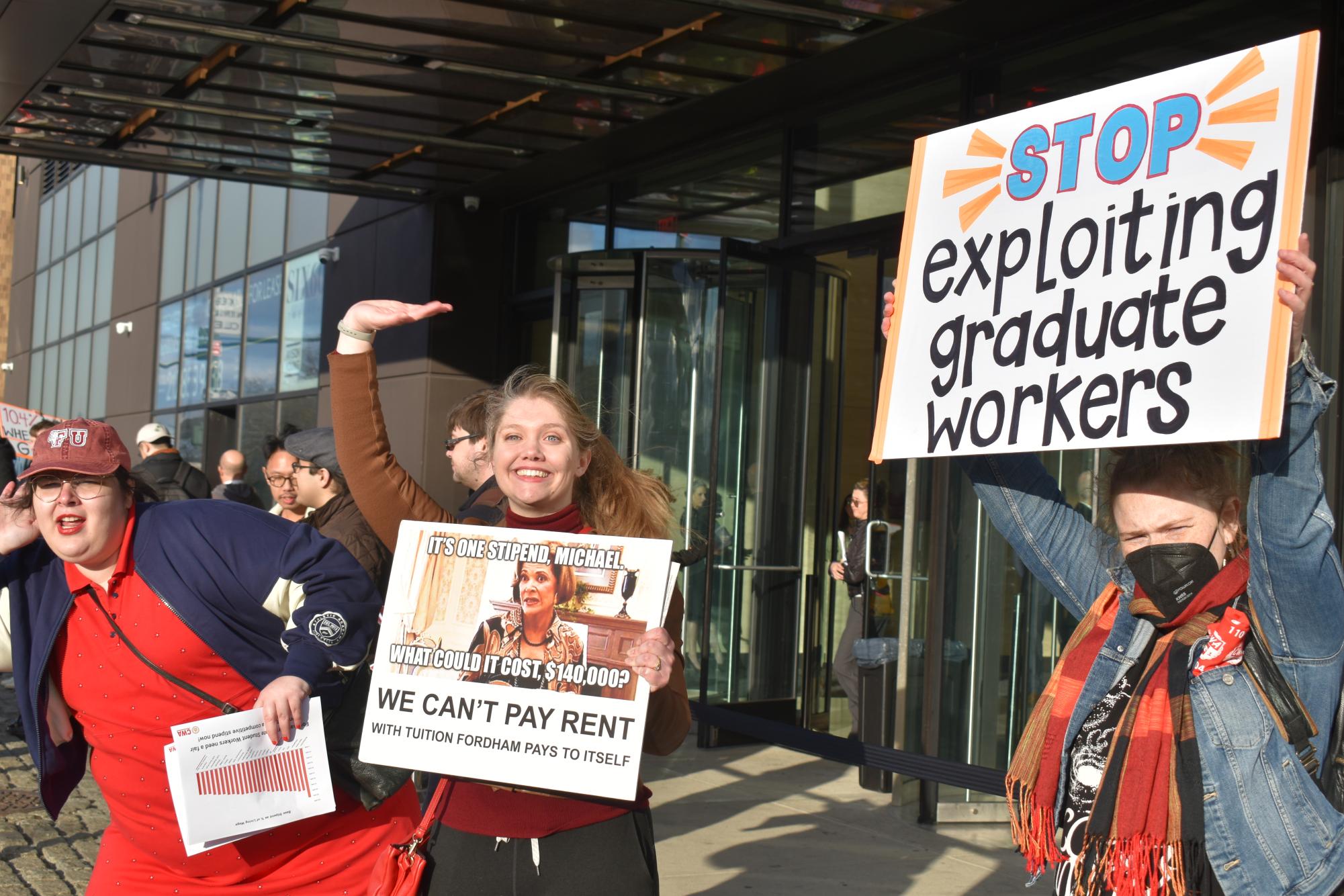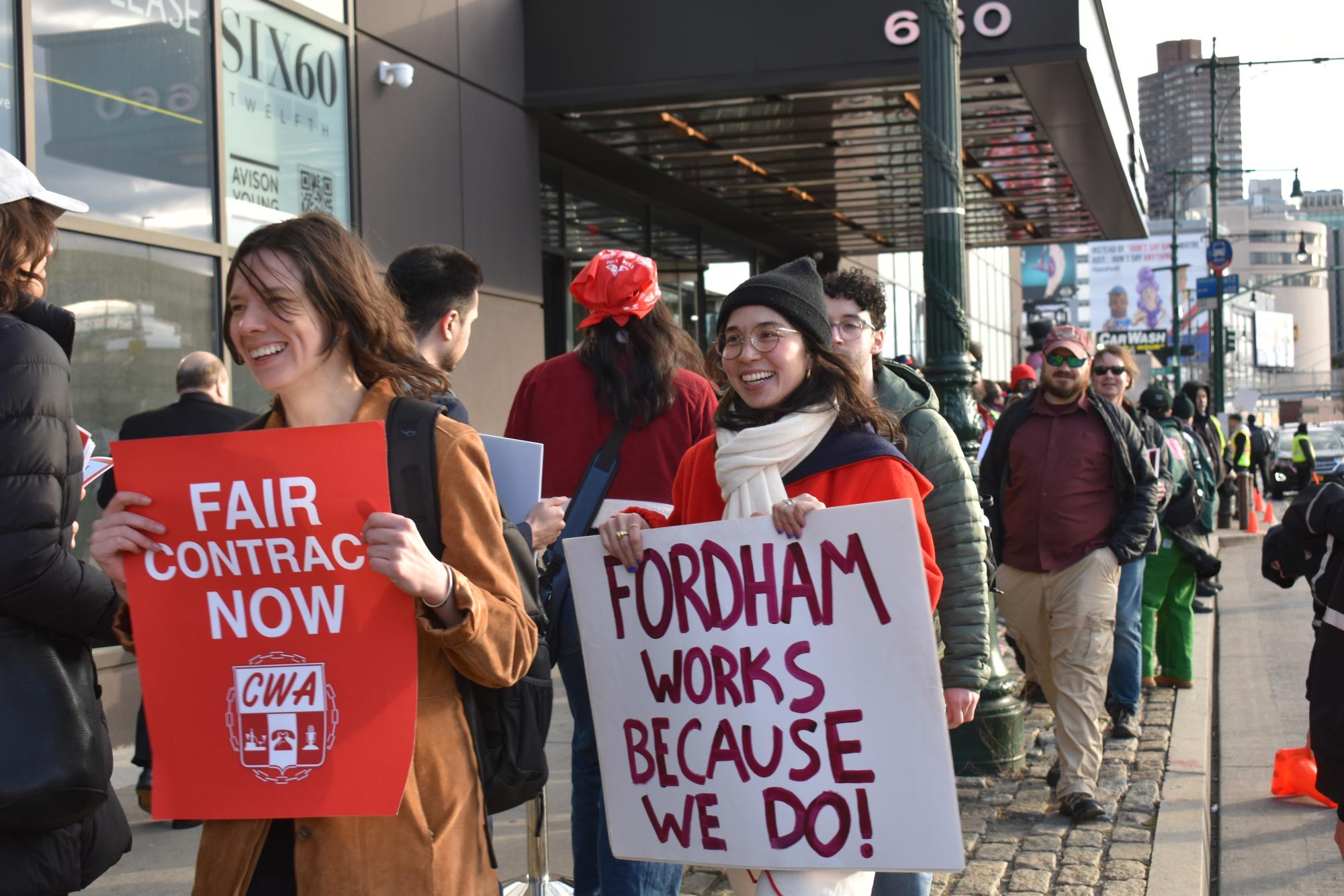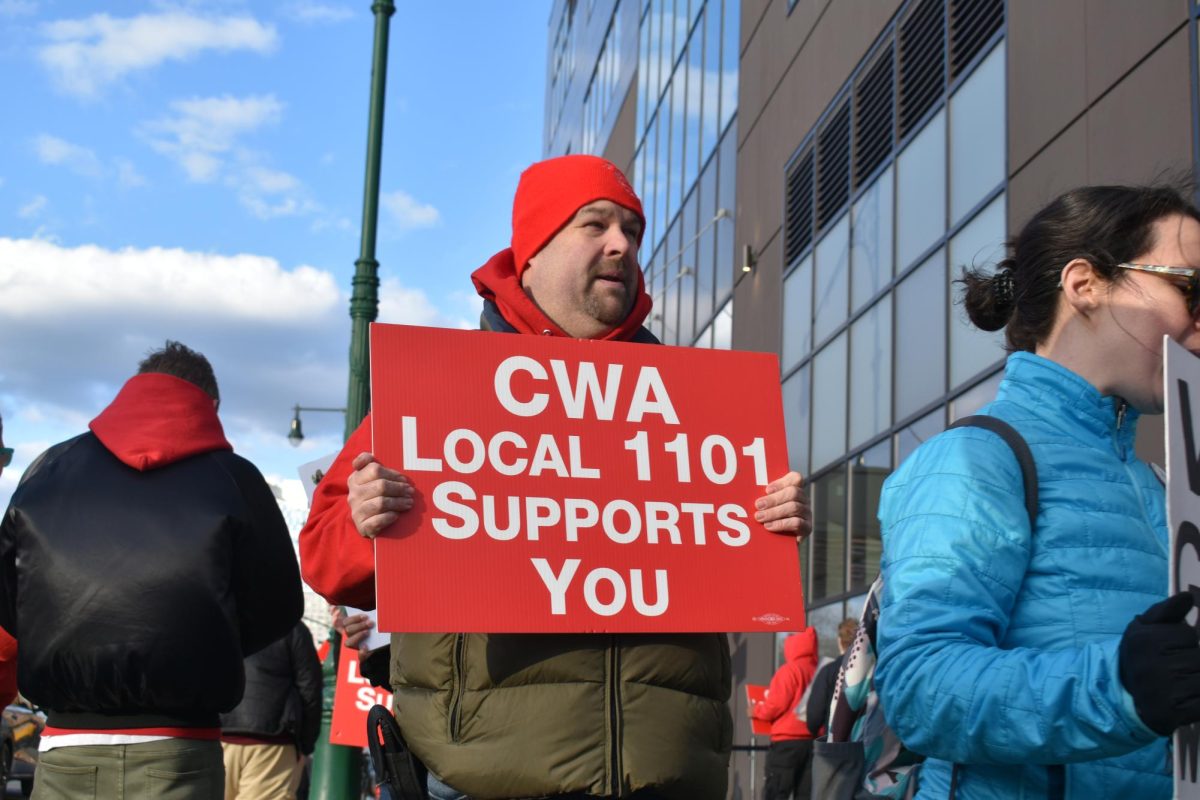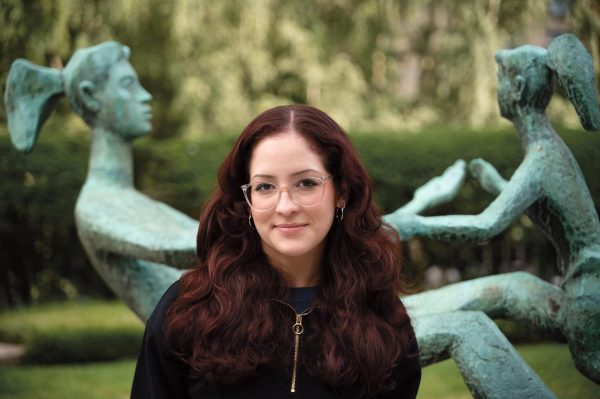Fordham Graduate Student Workers (FGSW) announced its members had approved a 98% vote in favor of authorizing a strike on April 9 after polls had closed. The vote is an effort to pressure the university to meet the union’s demands in ongoing contract negotiations for higher compensation, healthcare benefits, childcare subsidies, and more.
The strike authorization vote will allow union leaders to call for a strike at any moment if Fordham does not move closer to meeting FGSW’s demands — both parties have been in negotiations for 19 months. If a strike were to occur, union members would not work until both parties negotiate a satisfactory contract with Fordham.
Many graduate student workers at Fordham must fulfill a pedagogy requirement that requires them to teach courses. The potentiality of a strike would result in the cancellation of classes and the union asserts Fordham could be at risk for reputational and economic losses.
FGSW believes the university must meet its demands for higher compensation in order to satisfy the local living wage. They are also asking for university-sponsored healthcare benefits including dental and vision coverage and subsidized child care.
While both parties have been unable to negotiate a complete contract, strides have been made in numerous tentative agreements on the use of NDA’s, employment protections for international students and discrimination policies.
Since passing the strike authorization vote, union members have gathered across the university’s Rose Hill and Lincoln Center campuses to picket and advocate for their demands. Numerous public officials have also expressed support for the union, including Vincent Alvarez, president of New York City’s Central Labor Council and New York State Assembly Member Brad Hoylman-Sigal.

“Fordham’s nearly 400 dedicated and talented graduate workers make the University’s programs possible, yet are paid poverty-level wages while living in one of the most expensive cities in the country,” Alvarez announced in a statement of solidarity with FGSW.
Amal Zaman, a member of FGSW’s coordinating committee and a former member of the union’s founding bargaining committee, said that union members want to be at work, teaching undergraduate students and at the forefront of research. Zaman explained that a strike is a “last resort,” and a sacrifice union members are willing to make in order to win a fair contract.
“A strike can still be averted if Fordham upper administration makes serious movement on stipends, fees, health insurance subsidies and childcare benefits,” Zaman said. “Fordham graduate student workers currently have among the lowest pay in the nation, when adjusted for the local cost of living. Fordham is losing top candidates for its grad programs because of low pay and high fees.”
“You are going to have a different kind of life here that is more expensive. But in return, you get all that New York has to offer. But that’s a trade off every single one of us makes.”Tania Tetlow, university president
In a press conference with The Observer and The Fordham Ram, Rose Hill’s undergraduate student publication, on April 12, University President Tania Tetlow stated that it’s “not within our power,” for the university to keep a strike from having an impact on students.
Since Fordham Faculty United (FFU), the union representing adjunct faculty members began contract negotiations in 2022, Tetlow has continued to assert that Fordham must balance the increasing demands for compensation with the tuition money that is used to fund employee compensation.
“We are not able to fill in for every graduate instructor teaching and grading,” the president said. “So our primary goal is to successfully come to a deal with the union to prevent a strike, or if it happens, to end it quickly.”

Robin Ortiz, a third-year English PhD candidate at the Graduate School of Arts and Sciences (GSAS), said that the Jesuit “cura personalis” is something she is proud to “live out” and looks forward to teaching students at Fordham. Ortiz added that she is ready to strike if the union’s demands are not met.
“Fordham‘s upper administration needs to remember the graduate workers are also whole people with rent to pay and families to feed and eyes and teeth that need vision and dental coverage,” she said. “I’m prepared to go on strike until president Tetlow takes that seriously.”
Tetlow asserted that increasing the benefits graduate student workers receive would create “equity issues” in which students would bear the cost through tuition. She also expressed that it would not be “fair” to full-time faculty members, as graduate student workers are supposedly capped at 18 hours of work per week.
“A strike can still be averted if Fordham upper administration makes serious movement on stipends, fees, health insurance subsidies and childcare benefits.”Amal Zaman, a member of FGSW’s coordinating committee and a former member of the union’s founding bargaining committee
In response to the prospective graduate students, Tetlow framed the expensive cost of living in the New York metropolitan area as a “trade off.”
“But if New York matters to you, every single person who lives here and works here, and every single undergraduate has made that same trade off choice, right,” Tetlow said. “You are going to have a different kind of life here that is more expensive. But in return, you get all that New York has to offer. But that’s a trade off every single one of us makes.”
FGSW has asked the university for benefits that full-time faculty members receive, such as receiving any additional childcare benefits faculty members may get in the future and university-sponsored healthcare with premium coverage for domestic partners, spouses, and dependents.
According to Tetlow, the “easy way” to avoid a strike would have been to further increase tuition costs. She stated that it has been “painful” to increase tuition costs over the last two academic years by over 10% and added that compensation costs make up around two-thirds of the university’s budget.
Michael Au-Mullaney, a sixth-year PhD candidate at GSAS studying philosophy, said that he is proud to teach undergraduate students at Fordham and learn together in the classroom, but the overbearing costs of the city make it difficult.
“Trying to survive in New York City with two young children at home with these poverty wages is just increasingly impossible. I look at what people doing the work that I do elsewhere in New York are making and it’s a lot more reasonable than what Fordham has been offering us,” Au-Mullaney said. “I see what our work is worth and we wanna be paid what our work is worth.”


